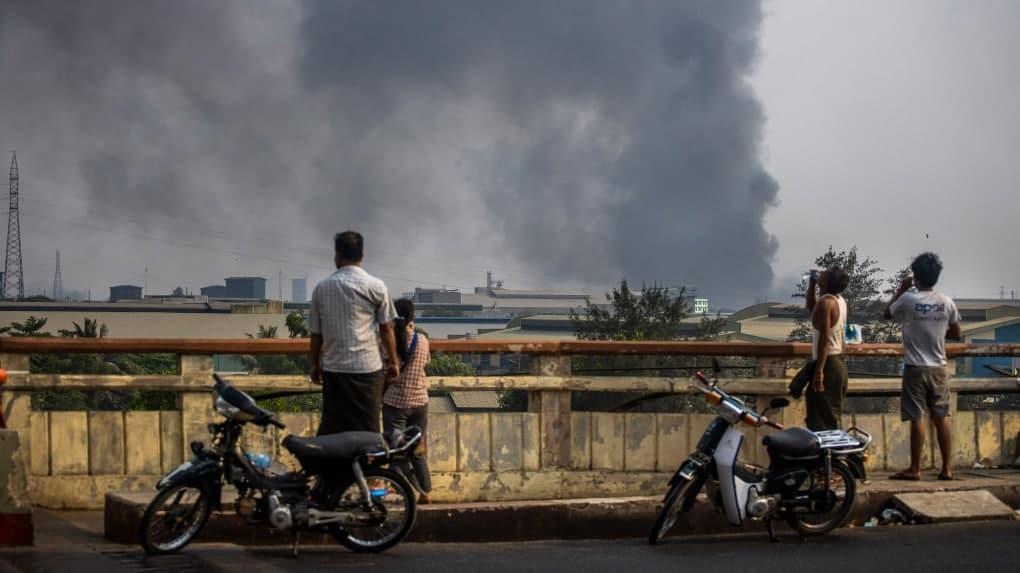YANGON, March 19 (AP) - Confusion over what exactly happened during recent attacks on factories in Myanmar has highlighted the complex and troubled nature of the country's relations with China amid a broad public backlash against a Feb 1 coup.
Many in Myanmar suspect Beijing of supporting the military’s takeover, and there has long been a deep vein of resentment against China's growing influence, but protesters insist they were not responsible for a spate of attacks on factories last weekend.
Adding to the uncertainties, China has said it is prepared to do more to protect its extensive business investments in Myanmar, which include factories, pipelines and other big infrastructure projects.
China's state-run Global Times asserted that protesters “incited by the West” had attacked 32 factories, causing 240 million yuan (about US$30 million) in damage.
Turmoil is bad for business and will deter investors, the Chinese state-owned broadcaster CGTN said in a commentary.
“But China won’t allow its interests to be exposed to further aggression. If the authorities cannot deliver and the chaos continues to spread, China might be forced into taking more drastic action to protect its interests,” CGTN said.
Much of the controversy over the arson attacks has centered on what happened in and around the Chinese-owned Xing Jia shoe factory in Hlaing Thayar. According to records from Panjiva and the Myanmar Investment Commission, the factory makes Western brand boots such as DeWalt and Dunlop and a wide variety of clothing.
But accounts from multiple sources, including Yangon-based labor organiser Andrew Tillett-Saks, say the fires broke out after five garment workers were shot and killed by the military when they reported to the factory to collect their February wages.
People living in the industrial zone contacted by phone by the Associated Press said that despite suspicions that the Feb 1 coup had Chinese support, workers were not responsible for burning the factories, which are protected by high walls and guards.
The Facebook page for the Chinese Embassy in Myanmar was flooded with tens of thousands of angry comments from local residents incensed over the lack of any mention of sympathy for those who died in the violence, after the page posted a call for better protection for the factories and Chinese personnel.
Apart from hundreds of factories making mostly clothing, shoes and other light industrial products, China has massive investments in Myanmar's energy and mining sectors.
One of the biggest investments is twin oil and gas pipelines that run nearly 800km from Made island on Myanmar's west coast to Ruili, on the border of China's Yunnan province.
Before the coup, Aung San Suu Kyi's government, which was due to remain in power after a landslide win in a November election, had announced a tender for another big Chinese-led project, a huge, deep-water port in Kyaukphyu, western Myanmar. A January visit by Chinese Foreign Minister Wang Yi drew a pledge for both sides to work toward completing that project and pushing ahead with an “economic corridor" linking China's southwestern Yunnan province with the port and major cities in Myanmar.
Myanmar’s leaders for years have long relied on China, as a permanent member of the United Nations Security Council, to help shield both military and civilian-led governments from harsh UN sanctions for human rights abuses.





